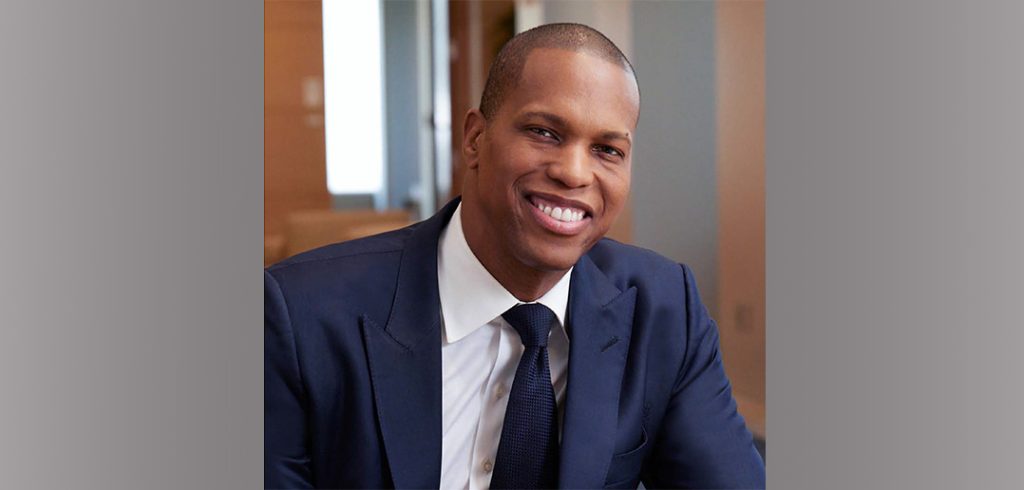The fund has personal resonance for Crawley, a Fordham trustee and business executive raised on Chicago’s working-class West Side by grandparents who were born in the Jim Crow-era South. On the way to his current role as executive vice president and chief human resources officer at Morgan Stanley, he has made a second career of giving back—among other efforts, serving on the boards of Covenant House New York and the national Boys and Girls Club, from which he benefited while growing up.
The Crawleys’ contribution advances the University’s $350 million fundraising campaign, Cura Personalis | For Every Fordham Student—in particular, its goal of fostering a richly diverse, inclusive campus community. In fact, Fordham’s commitment to that goal was one reason Crawley came to the Gabelli School of Business for his executive MBA, graduating in 2009.
The program was infused with real-world experience, Jesuit values, and a strong sense of community, and left him with many strong friendships—hence the joy in making his gift, he says. “I have a real heart for the University, and now that I have an opportunity to devote financial capital to this mission, in addition to my personal human capital and my time, it feels awfully good to be able to do so.”
Why did this giving opportunity appeal to you?
I’ve had a tremendous amount of help and support that made a real difference for me. There are no silver bullets in life, but education is probably the closest thing to it in terms of putting folks who come from under-resourced areas on a path to not just self-sustainability but success over time. So for me, being a beneficiary of such efforts over the years, I feel like now that I’m in a position to give back in a meaningful way, what better way to do it than through a mechanism like the Trustee Diversity Fund?
Do you see progress in improving racial equity and justice in America?
Undoubtedly we’ve made progress in middle-class representation, health and life expectancy, housing and homeownership, and the number of Black and brown folks who are graduating with college degrees. One area that really gives me the greatest degree of optimism is the vibrancy of entrepreneurship in Black and brown communities, even though capital raising is uneven and remains a challenge. I’m not saying “mission accomplished”—in some areas you could argue we haven’t made as much progress. There’s still a lot of work that remains.
What’s the best way to achieve greater workplace diversity and inclusion?
I think there are three non-negotiables. You’ve got to commit resources to the necessary programming. And you’ve got to always be thinking about new, creative ways to get at this—for instance, looking for talent beyond your typical talent pools, as long as they’ve got the requisite hard skills to make the transition. But most of all, it’s having sustained will for the work and creating a culture in which everybody feels like they belong, including our majority colleagues.
To what extent can greater workplace diversity boost a company’s performance?
This is an area where there’s a great deal of debate. Diversity on its own is insufficient; I think the important added context is a team that has a high degree of competence, a necessary level of collegiality, and competitive urgency. If you have those foundational factors, and then you add to that a diverse mix and different perspectives, I think it’s irrefutable that you’ll get outperformance.
What do Jesuit values look like in a business context?
I’d say, within my industry, avoiding the false choice—the idea that in order to be wildly successful in your financial pursuits, you have to compromise your morals and virtues. It really gets at ethics and character.

